D. Ellinghaus, A. Franke, and The Severe COVID-19 GWAS Group, Kiel University
Kiel University as an associated partner of de.NBI
Covid-19 has varied manifestations, with the large majority of those infected showing only mild symptoms or even no symptoms. But why do some people become severely ill with Covid-19 while others show hardly any symptoms? Mortality rates are driven predominantly by the subgroup of patients suffering from severe respiratory failure related to interstitial pneumonia in both lungs and acute respiratory distress syndrome. Genome-wide association analyses make it possible to identify potential genetic factors involved in the development of severe Covid-19 with respiratory failure.
We conducted a genome-wide association study involving 1,980 patients with Covid-19 and severe disease (defined as respiratory failure) from seven hospitals in the Italian and Spanish epicenters of the SARS-CoV-2 pandemic in Europe. The lower disease burden of Covid-19 in Germany allowed to establish a complementary team. Genotyping and bioinformatic analyses were carried out in parallel with the rapid recruitment of patients in the heavily affected Italian and Spanish epicenters.
We discovered cross-replicating genome-wide significant genetic associations with Covid-19 with respiratory failure at loci 3p21.31 and 9q34.2, and further confirmed a potential involvement of the ABO blood-group system. At locus 3p21.31, the association signal spanned the genes SLC6A20, LZTFL1, CCR9, FYCO1, CXCR6 and XCR1. The association signal at locus 9q34.2 coincided with the ABO blood group locus. An ABO blood group specific analysis showed a higher risk for blood group A carriers compared to other blood groups and a protective effect for blood group O carriers as compared to other blood groups. Further investigation of the results will allow to assess the usefulness of the results for the development of clinical risk profiles of patients with Covid-19 and improve our understanding of the underlying pathophysiology.
Genome-wide summary statistics are publicly available through our web browser (www.c19-genetics.eu) and have been submitted to the European Bioinformatics Institute (www.ebi.ac.uk/gwas; accession numbers, GCST90000255 and GCST90000256); the study is supported by a grant from the German Federal Ministry of Education and Research (01KI20197).
For further information please also read our recent publication here.

